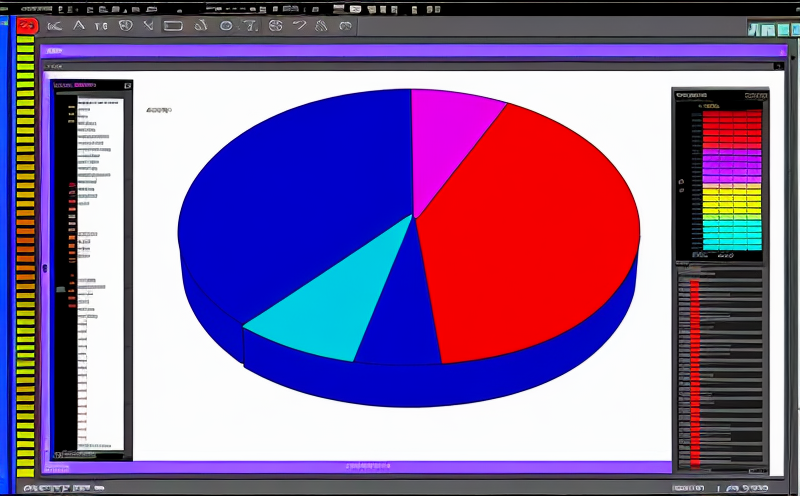GB T 19468 Thermal Mechanical Analysis of Polymers
The GB/T 19468 standard provides a detailed method for performing thermal mechanical analysis (TMA) on polymers. This analysis is essential for understanding the physical and chemical properties of polymer materials, especially in terms of their behavior under temperature variations.
GB T 19468 focuses specifically on the determination of glass transition temperatures, melting points, and other thermal properties that are critical for quality assurance and compliance. The method is widely used across various industries including manufacturing, pharmaceuticals, and electronics where polymer performance is paramount.
The procedure involves subjecting a sample to controlled temperature changes while monitoring its expansion or contraction due to thermal stress. This allows engineers and scientists to identify the point at which a material begins to soften (glass transition) and melts completely. These insights are crucial for optimizing production processes, ensuring product quality, and meeting regulatory requirements.
The standard specifies clear guidelines on specimen preparation, instrumentation setup, and data interpretation, making it an indispensable tool in R&D environments. It ensures consistent results across different laboratories by standardizing the testing protocol. This consistency is vital given that minor variations in test conditions can lead to significant discrepancies in reported properties.
GB/T 19468 also plays a key role in quality control, helping manufacturers maintain product integrity and safety standards. By providing precise measurements of thermal mechanical behavior, this method supports the development of new materials with improved performance characteristics. Understanding these behaviors helps predict how polymers will perform under real-world conditions, thereby enhancing reliability and longevity.
Moreover, the standard is instrumental in regulatory compliance, ensuring that products meet national and international standards for safety and quality. Compliance with GB/T 19468 not only protects end users but also fosters trust within the supply chain by demonstrating commitment to high-quality practices.
In summary, GB T 19468 is a cornerstone in the field of polymer testing, offering comprehensive guidance on how to accurately assess thermal mechanical properties. Its application spans numerous sectors where polymers are integral components, from automotive manufacturing to medical device development. By adhering to this standard, stakeholders can ensure accurate, reproducible data that drives innovation and compliance.
Applied Standards
| Standard | Description |
|---|---|
| GB/T 19468-2003 | This standard outlines the procedure for determining thermal mechanical properties of polymers using thermomechanical analysis. |
| ASTM D765 | American Society for Testing and Materials standard that covers similar parameters though with different methodologies. |
| ISO 11358-2 | An International Organization for Standardization standard which provides additional details on specimen preparation and conditioning. |
Benefits
The implementation of GB/T 19468 brings numerous benefits to businesses operating in the chemical testing sector. It enhances the reliability and accuracy of thermal mechanical property determinations, which is crucial for maintaining high standards of quality assurance.
For quality managers, this standard ensures that all products meet stringent specifications set by industry regulations. This helps in reducing waste and rework during manufacturing processes, ultimately leading to cost savings. Compliance with GB/T 19468 also strengthens the reputation of a company by demonstrating its commitment to excellence.
Compliance officers find this standard particularly useful as it provides them with robust tools for ensuring adherence to local laws and international standards. This not only minimizes legal risks but also opens up new markets where stringent compliance requirements are enforced.
R&D engineers benefit from the detailed insights into polymer behavior under varying temperatures, which can guide material selection and formulation optimization. This leads to innovations that improve product performance while ensuring safety and sustainability.
For procurement professionals, GB/T 19468 offers a benchmark for evaluating suppliers based on their ability to deliver materials meeting specified thermal mechanical properties. This ensures that only the highest quality raw materials are used in production processes.
In essence, adherence to GB/T 19468 supports continuous improvement initiatives within organizations by providing reliable data points upon which improvements can be made iteratively without compromising on safety or performance.
Environmental and Sustainability Contributions
The adoption of GB/T 19468 contributes significantly to environmental sustainability efforts. By accurately assessing the thermal mechanical properties of polymers, this standard helps in selecting eco-friendly materials that have lower environmental impact throughout their lifecycle.
Understanding how these materials behave under different temperatures allows manufacturers to design products more efficiently, reducing energy consumption during both production and usage phases. For instance, knowing precisely when a polymer begins to degrade at higher temperatures can help in optimizing insulation properties of building materials or improving the longevity of electronic components exposed to heat.
Furthermore, accurate thermal analysis aids in developing biodegradable plastics that decompose faster after disposal without harming ecosystems. Such advancements contribute positively towards reducing waste accumulation and promoting circular economy principles.
By ensuring consistent quality across all stages of product development and manufacturing processes, GB/T 19468 indirectly supports sustainable practices by minimizing resource depletion associated with suboptimal designs or ineffective production methods. In conclusion, this standard plays a vital role in fostering responsible consumption patterns among industries reliant on polymer technologies.





